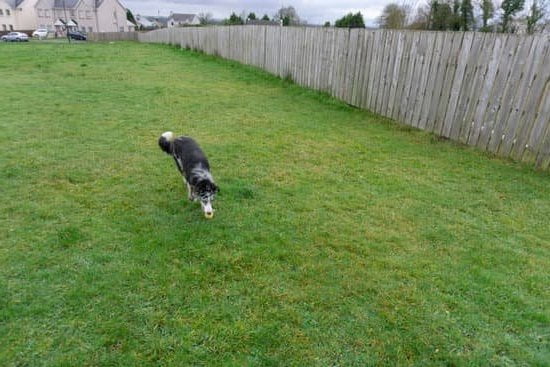Are you wondering how to train desi dog? Desi dogs, also known as Indian pariah dogs or native dogs, have a long-standing history in India and are known for their intelligence, resilience, and loyalty. In this article, we will explore effective training techniques specifically tailored to the unique behavior and temperament of desi dogs.
Understanding the behavior and temperament of desi dogs is crucial in successfully training them. As a diverse group of canines, desi dogs exhibit a wide range of characteristics that are shaped by their environment and upbringing. This section will delve into the distinctive traits of desi dogs and provide insight into how to work with these qualities when training.
In addition, we will discuss methods for establishing trust and building a strong bond with your desi dog. By fostering a positive relationship based on mutual respect and understanding, you can lay the foundation for successful training experiences. Whether you have recently adopted a desi dog or have had one as a companion for years, these foundational aspects play a crucial role in shaping your dog’s behavior and responsiveness to training.
Understanding Desi Dog Behavior and Temperament
Desi dogs, also known as Indian native dogs, have a unique set of behaviors and temperament that sets them apart from other breeds. Understanding their behavior and temperament is crucial in effectively training and caring for these special dogs.
Distinct Behaviors of Desi Dogs
Desi dogs are known for their high level of intelligence, independence, and adaptability. They have evolved over the years to survive in diverse environments, which has shaped their behavior. Desi dogs are often highly alert and territorial, making them excellent watchdogs. They are also known for their loyalty to their family members and strong pack mentality.
Temperament Traits of Desi Dogs
Desi dogs exhibit a wide range of temperamental traits, with each dog having its own unique personality. While some may be friendly and outgoing, others may be more reserved or cautious around new people or situations. It is important to recognize and respect the individual temperament of each desi dog in order to effectively train and care for them.
Understanding Desi Dog Body Language
Like all dogs, desi dogs communicate through body language. Learning to interpret their signals can help you better understand how they are feeling and what they need. Pay attention to their ears, tail, posture, and facial expressions to gauge their emotions and reactions in different situations. By understanding their body language, you can build a stronger bond with your desi dog and address any behavioral issues that may arise.
Establishing Trust and Bond With Your Desi Dog
Desi dogs, also known as Indian pariah dogs, are highly intelligent and adaptable animals. However, due to their history of living on the streets, they may be initially wary of humans and reluctant to trust. Building trust and establishing a strong bond with your Desi dog is crucial for successful training and overall well-being.
To establish trust and bond with your Desi dog, consider the following tips:
1. Patience and Consistency: Desi dogs may take time to adjust to new environments and routines. Be patient and consistent in your interactions with them, providing reassurance and positive reinforcement.
2. Respect their Space: Allow your Desi dog to approach you on their own terms. Avoid forcing physical contact or overwhelming them with attention.
3. Use Positive Reinforcement: Reward good behavior with treats, praise, or toys. This will help build a positive association with training and interaction.
4. Spend Quality Time Together: Engage in activities that promote bonding such as grooming, playtime, and leisurely walks. This will help strengthen the bond between you and your Desi dog.
By following these guidelines, you can gradually earn the trust of your Desi dog and develop a strong bond that forms the foundation for effective training and a harmonious relationship. Remember that every dog is unique, so be attentive to your pet’s individual needs while building trust and establishing a close connection.
Basic Obedience Training for Desi Dogs
Desi dogs are a popular breed in many parts of the world, known for their intelligence, loyalty, and friendly nature. Basic obedience training is an essential part of caring for a Desi dog, helping to establish boundaries, build trust, and create a strong bond between you and your pet. By teaching your Desi dog basic obedience commands, you can ensure that they are well-behaved and safe in various situations.
One of the first steps in basic obedience training for Desi dogs is teaching them to respond to their name. This simple command forms the foundation for all other obedience training and helps to ensure that your dog will come to you when called. Using positive reinforcement techniques such as treats or praise can be highly effective in teaching your Desi dog to recognize and respond to their name.
Another important aspect of basic obedience training is teaching your Desi dog to sit on command. This not only helps with impulse control and manners but also provides a useful tool for managing your dog in different situations. Using treats or toys as rewards can help motivate your Desi dog to learn the “sit” command quickly and effectively.
In addition to responding to their name and sitting on command, leash training is another crucial aspect of basic obedience training for Desi dogs. Proper leash manners make walking your dog an enjoyable experience for both you and your pet, while also ensuring their safety when outside the home.
Teaching your Desi dog to walk nicely on a leash can involve using positive reinforcement techniques, patience, and consistency. With time and practice, most Desi dogs can become well-behaved companions on walks with proper training.
| Command | Technique |
|---|---|
| Name Recognition | Positive reinforcement with treats or praise |
| Sit Command | Reward-based training with treats or toys |
| Leash Training | Consistent positive reinforcement during walks |
Positive Reinforcement Techniques for Training
Positive reinforcement is an effective training technique for Desi dogs, as it helps create a strong bond between the owner and the pet while encouraging good behavior. This method involves rewarding your dog for exhibiting the desired behavior, which can include treats, praise, or toys. By using positive reinforcement, you can motivate your Desi dog to repeat the actions that lead to a reward, making training a more enjoyable experience for both of you.
One common positive reinforcement technique is clicker training, where a small handheld clicker is used to create a distinct sound that marks the exact moment your dog performs the desired behavior. The click is then followed by a treat or praise, associating the sound with positive outcomes in your dog’s mind.
This method is particularly effective in teaching specific commands and tricks to Desi dogs, as they can quickly understand the cause-and-effect relationship between their actions and the clicker sound.
It’s important to use positive reinforcement consistently and be patient with your Desi dog during training sessions. Every pet has its own pace of learning, so it’s essential to be understanding and encouraging throughout the process. With time and practice, you will see improvements in your dog’s behavior and responsiveness to commands through positive reinforcement techniques.
| Positive Reinforcement Techniques | Effectiveness |
|---|---|
| Clicker Training | Effective in teaching specific commands and tricks |
| Treats and Praise | Motivates dogs to exhibit desired behaviors |
Addressing Common Behavior Issues in Desi Dogs
Desi dogs are known for their intelligence, loyalty, and adaptability. However, like any other breed, they may exhibit certain behavior issues that need to be addressed. It is important for dog owners to understand these common behavior issues and learn how to effectively manage them.
Separation Anxiety
One common behavior issue in Desi dogs is separation anxiety. This can manifest in excessive barking, destructive behavior, or inappropriate elimination when left alone. To address this issue, it is important to gradually accustom your dog to being alone by practicing short departures and returns. Providing interactive toys or treat puzzles can also help keep them mentally stimulated during your absence.
Aggression
Desi dogs may exhibit aggression towards other dogs or people due to fear or territorial instincts. It is crucial to socialize your Desi dog from a young age and expose them to various environments, people, and animals. Additionally, seeking professional help from a certified dog trainer or behaviorist can provide guidance on managing and modifying aggressive behaviors.
Excessive Barking
Another common behavior issue in Desi dogs is excessive barking, which can be triggered by boredom, loneliness, or anxiety. To address this issue, it is important to provide regular exercise and mental stimulation for your dog. Using positive reinforcement techniques such as rewarding quiet behavior can also help in reducing excessive barking.
By understanding these common behavior issues in Desi dogs and implementing the appropriate training and management techniques, dog owners can effectively address and modify these behaviors for a well-adjusted and well-behaved pet.
Socializing Your Desi Dog With Other Animals and People
When it comes to your desi dog, socialization is a crucial aspect of their training and development. Proper socialization can help your furry friend become well-adjusted, confident, and friendly towards other animals and people. Here are some tips to help you successfully socialize your desi dog:
- Start Early: The key to successful socialization is to start early. Introduce your desi dog to different animals, environments, and people as soon as possible so they can become accustomed to various situations.
- Positive Experiences: Ensure that your desi dog’s social interactions are always positive. Use treats, toys, and praise to reinforce good behavior and create a positive association with new experiences.
- Controlled Environment: When introducing your desi dog to new animals or people, make sure the environment is controlled and safe. This will minimize any potential stress or anxiety for your furry companion.
- Consistency: Consistent exposure to different environments and individuals is essential for proper socialization. Regular outings, interactions with other dogs, and meeting new people will help your desi dog become more comfortable in various settings.
By following these tips and prioritizing socialization in your desi dog’s training regimen, you can help them develop into a well-behaved and friendly companion. Remember that every dog is unique, so be patient and understanding throughout the socialization process.
Advanced Training Techniques for Desi Dogs
Desi dogs, like any other breed, can benefit from advanced training techniques to further their skills and abilities. Once your desi dog has mastered basic obedience commands, you may want to consider advanced training to keep them mentally stimulated and engaged. Advanced training can include agility courses, advanced tricks, and even specialized tasks such as search and rescue or therapy work.
One important aspect of advanced training for desi dogs is to ensure that the training is tailored to their specific strengths and abilities. For example, desi dogs are known for their intelligence and agility, so agility courses can be a great way to challenge them physically and mentally. Additionally, desi dogs are often highly adaptable and quick learners, making them well-suited for specialized tasks such as search and rescue work.
When implementing advanced training techniques for your desi dog, it’s important to continue using positive reinforcement methods. Rewarding your dog for successfully completing a new trick or task will help motivate them to continue learning and performing at their best. Additionally, keeping training sessions fun and engaging will help maintain your desi dog’s enthusiasm for learning new skills.
Finally, it’s important to remember that every dog is unique, and what works for one desi dog may not work for another. Be patient with your dog as they learn new advanced techniques, and be sure to celebrate their successes along the way. With dedication and positive reinforcement, you can help your desi dog reach their full potential through advanced training techniques.
Implementing Exercise and Mental Stimulation for a Well-Trained Desi Dog
Desi dogs, like any other breed, require regular exercise and mental stimulation to maintain their overall well-being and behavior. Without proper physical activity and mental engagement, these dogs may develop behavioral issues such as excessive barking, destructive chewing, or hyperactivity. Therefore, it is essential for Desi dog owners to implement a structured exercise routine and provide mental stimulation to ensure a well-trained and happy pet.
One way to provide physical exercise for your Desi dog is through daily walks or jogs. Depending on the size and energy level of your dog, you may need to adjust the duration and intensity of these activities.
Engaging your Desi dog in games such as fetch or agility training can also help in burning off excess energy and keeping them physically active. It is important to note that consistent exercise not only helps in maintaining a healthy weight but also contributes to their mental well-being.
In addition to physical exercise, Desi dogs also benefit from mental stimulation through interactive toys, puzzle feeders, and obedience training sessions. Providing mentally stimulating activities helps in preventing boredom and can prevent undesirable behaviors caused by lack of mental engagement. Consider incorporating obedience training exercises into daily routines such as sit-stay commands or teaching new tricks.
These activities not only provide mental stimulation but also strengthen the bond between the owner and the dog while reinforcing positive behavior patterns. By implementing both physical exercise and mental stimulation, owners can ensure that their Desi dog is well-trained and content.
Conclusion and Resources for Further Training Assistance
In conclusion, training a Desi dog requires patience, understanding, and consistent positive reinforcement techniques. By taking the time to understand their behavior and temperament, establishing trust and a strong bond, and utilizing basic obedience training, Desi dogs can become well-trained and well-behaved companions. It is important to address any common behavior issues that may arise with patience and understanding, while also socializing them with other animals and people to ensure they are well-rounded pets.
Advanced training techniques can further enhance the relationship between you and your Desi dog, while also implementing regular exercise and mental stimulation will contribute to their overall well-being. It is important to remember that every dog is different, so being adaptable in your training methods is crucial for success.
For further assistance in training your Desi dog, there are many resources available such as professional trainers, online courses, and books specifically geared towards Desi dogs. Remember that training a dog takes time and dedication but the rewards of having a well-trained Desi dog as a companion are immeasurable. With the right approach and resources, both you and your furry friend can enjoy a harmonious relationship based on trust, love, and mutual respect.

Welcome to the blog! I am a professional dog trainer and have been working with dogs for many years. In this blog, I will be discussing various topics related to dog training, including tips, tricks, and advice. I hope you find this information helpful and informative. Thanks for reading!





